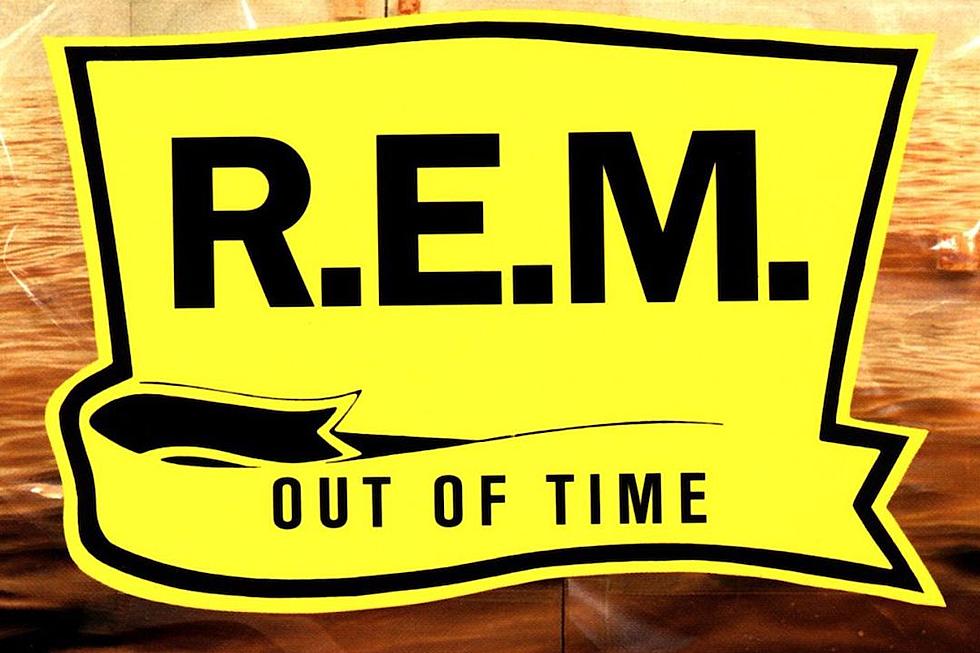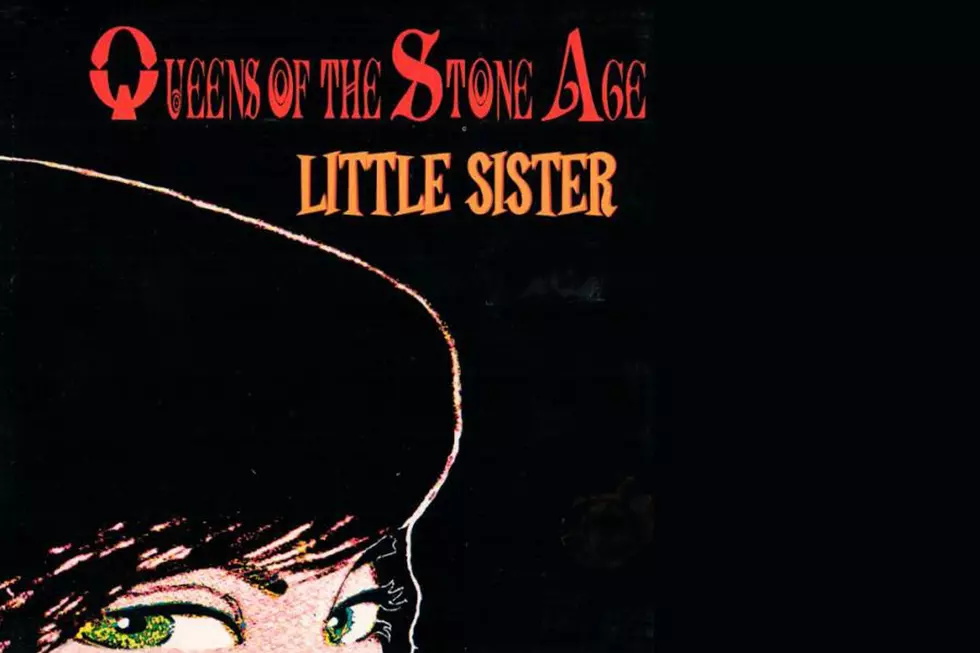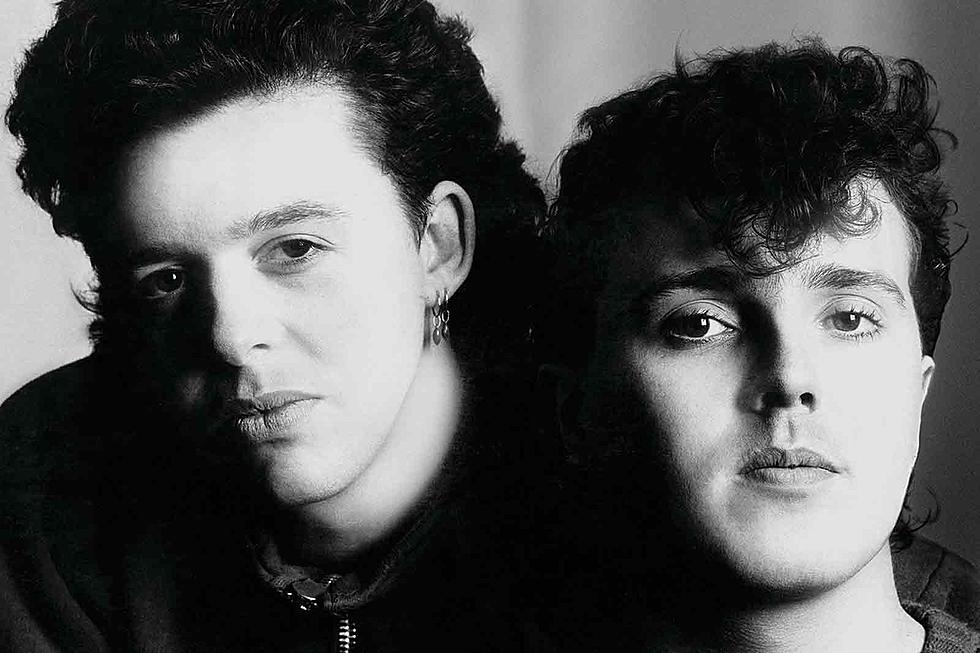25 Years Ago: Annie Lennox Steps Out On Her Own With ‘Diva’
When the Eurythmics drifted into hiatus following the release of 1989's We Too Are One LP, singer Annie Lennox didn't hurry into a solo career. But as she proved with her 1992 debut Diva, she hadn't lost her muse.
Released in the spring of 1992, Diva offered an emphatic statement of independence — not only from the duo that had defined her in the public eye over the previous decade, but from many of the constraints the music industry placed on female artists in terms of marketing and image. As she'd done so often throughout her career, Lennox adopted a heavily stylized image that was equal parts fashion statement and artistic commentary; on the album cover, she wore a large headdress and heavy makeup — neither of which, she pointed out in an interview surrounding the record's release, were necessarily intended to be taken at face value.
"It's meant to be partly ironic," said Lennox. "My life is divided into the public me and the private me. In the public me, I am seen as a woman on a pedestal, an artifice, who glides from place to place, a grandiose creature with no other life. That’s the one I’m projecting. It’s not me, of course. It’s myth-making, the lifestyle of the persona I am creating."
Lennox's Diva makeover also acted as a layer of artifice between herself and the gears of the industry, mitigating what she described as the "Faustian deal" female artists strike when exposing themselves to public physical scrutiny. "It's daunting for me to be exposed in public again," she admitted. "I want to go carefully, slowly-slowly."
If she was physically guarded, Lennox was nakedly personal when it came to Diva's songs, the majority of which were solo compositions. Although she co-wrote with Jethro Tull member Peter-John Vettese on "Legend in My Living Room" and collaborated with members of the Blue Nile on "The Gift," the rest of the 10-track set was all Lennox — the beginning of a new creative phase after her lengthy partnership with fellow Eurythmic David A. Stewart. Her move into the solo spotlight was underscored with the lyrics of opening track and leadoff single "Why," which — although Stewart later claimed it had been written about him — Lennox described as a response to "feeling misunderstood."
"For me, words are very powerful," said Lennox. "One person can misinterpret what the other person’s saying so easily."
She found an eager audience for that message — and for Diva in general, which surged into the U.S. Top 40 on its way to more than two million copies sold. Although the album was a far bigger hit in her native U.K., where it topped the charts, it represented a commercial rebound in America, where the Eurythmics' fortunes had flagged later in their career. "Why" gave Lennox her first solo Top 40 single, while follow-up single "Walking on Broken Glass" peaked at No. 14. Although she'd never obviously gone out of her way to court pop stardom, Lennox admitted the warm reception offered a surprise measure of vindication after years of feeling somewhat abandoned by her U.S. fans.
"I just felt rejected. I thought, 'Look at all that crap on the charts. I can do better than that. It’s rubbish.' And then I got very blasé about it," she later recalled. "I thought, 'Oh well, they’re all f---ed up anyway. Their culture’s a mess,' and I really didn’t care. In fact, I said I’d rather not put it out in America. But I couldn’t do that, because I’m contracted. I had to put it out there."
Ultimately, Diva announced Lennox as a vital solo artist in her own right, proving her creative strength remained undimmed outside the context of her work with Stewart. Yet as gracefully as she entered the solo spotlight, she was already planning to recede; having started a family in the years immediately following the Eurythmics' split, she understood she'd entered a chapter in which releasing new music took a back seat to her life at home. In the years following its release, she'd move at a measured pace, resurfacing at irregular intervals — and almost as often as not, she'd do so as a vocal interpreter rather than a songwriter, releasing albums of covers between new collections of original material. When she hinted at retirement in 2014, it was just the latest step in a long journey away from pop stardom.
"With Eurythmics, I really devoted my life to the band. It came before everything else," Lennox reflected during the months surrounding Diva's release. "Now I am not in that position. What I do musically – although it’s terribly important to me – is not the most important thing in my life. Professionally and personally, I have grown up."
Bands Snubbed by the Rock and Roll Hall of Fame
More From Diffuser.fm









